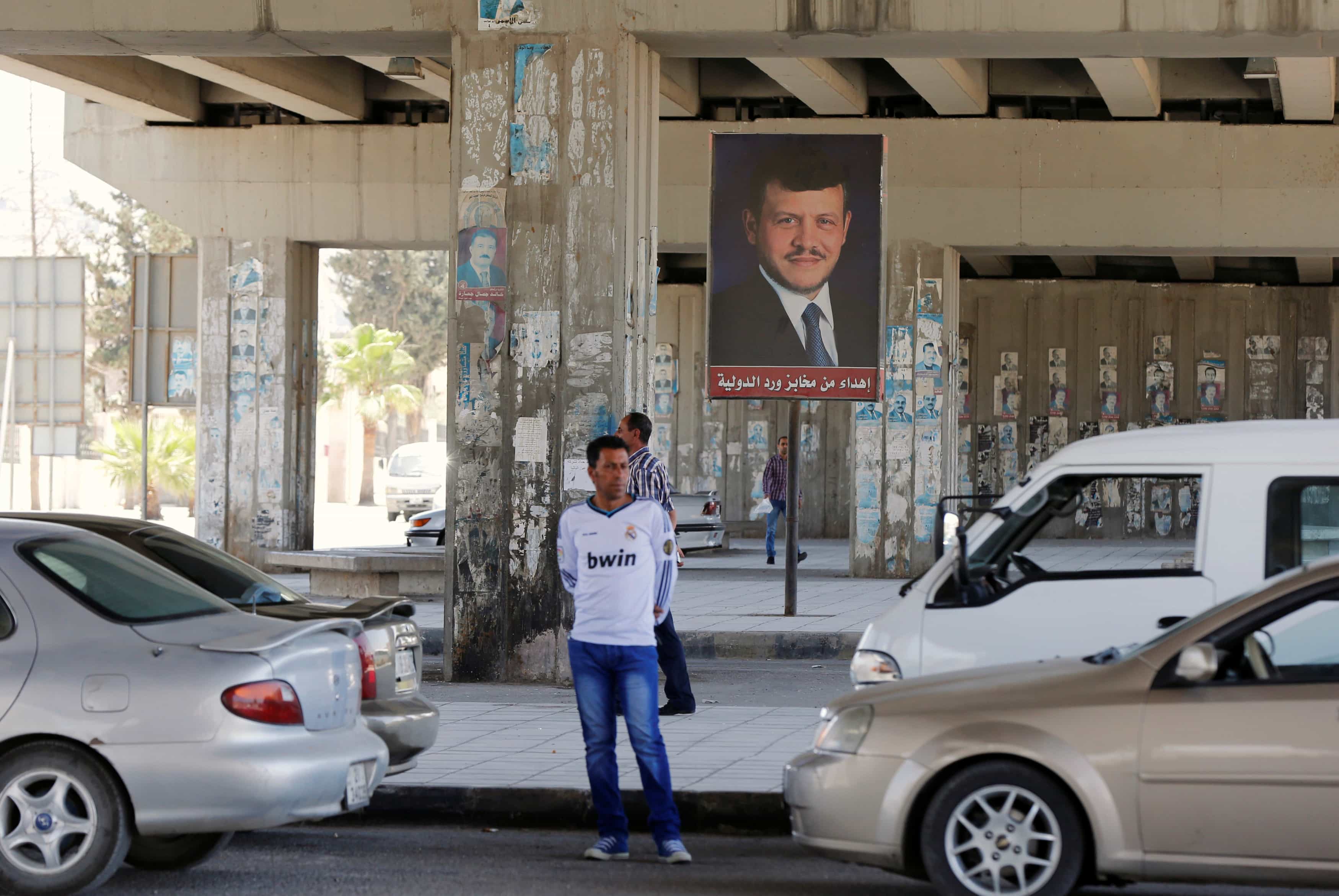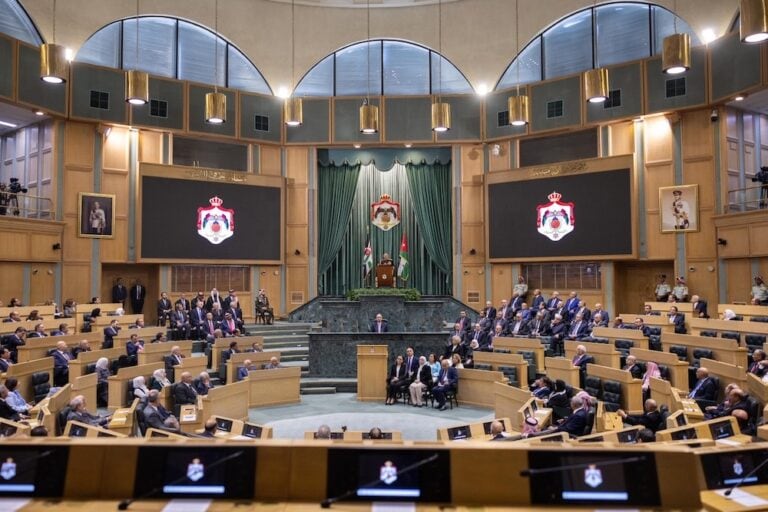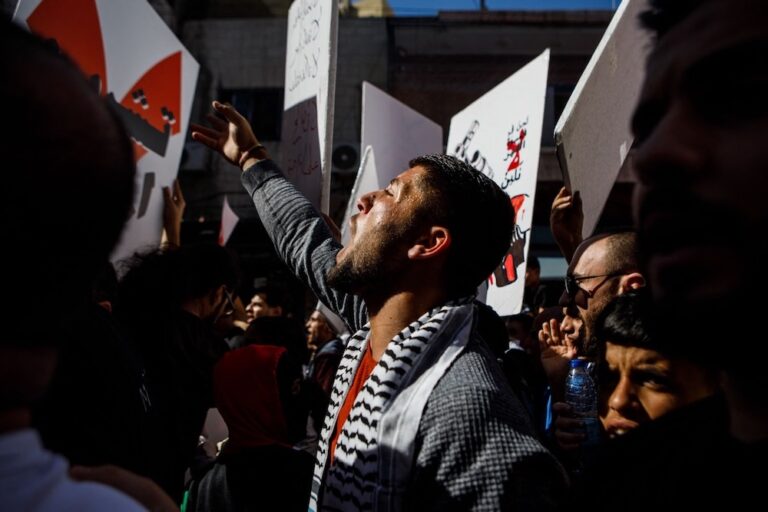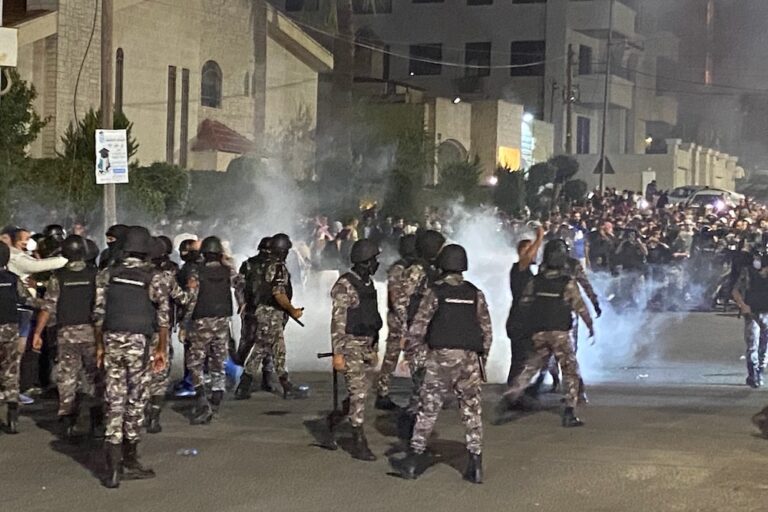Just this week, the Media Commission, the government agency responsible for enforcing press laws and regulations, issued a memo to news outlets stating that no news can be published about the king or the royal family unless it has been sent by the media unit of the royal court.
This statement was originally published on cpj.org on 31 August 2016.
By Sherif Mansour
Sitting uncomfortably in her chair because of a soccer injury, the Jordanian radio host Diala Dabbas said, “I know we are banned from talking about the king, his family, and the divine, but now I am also afraid to talk about anyone else who could be considered a ‘religious symbol’.”
Dabbas was injured while taking a forced hiatus earlier this month from her daily morning radio show “Kabsa,” which translates roughly as “Hassle.” Jordan’s Media Commission banned her show on the local station Sawt Elghad for two weeks for misrepresenting and insulting the country’s religious authority, the Grand Mufti Abdul Karim Khasawneh, during a broadcast on July 31.
Dabbas told me that since her return to the airwaves she has felt an increase in censorship, with certain political and religious discussions becoming more and more off limits. This sentiment was repeated by several journalists and analysts with whom I met in Jordan last week, to discuss the media environment ahead of the parliamentary elections scheduled for September 20.
Just this week, the Media Commission, the government agency responsible for enforcing press laws and regulations, issued a memo to news outlets stating that no news can be published about the king or the royal family unless it has been sent by the media unit of the royal court. Those ignoring the order will be “subject to liability,” the memo said, without specifying what penalties journalists could face.
This type of government censorship has been ongoing for a couple of years and comes in the context of a spike of arrests in 2014 and 2015. Many of the journalists I spoke with referenced a tally by the local news website 7iber of 15 gag orders since 2014. Lina Ejeilat, the editor of 7iber and a member of CPJ’s Middle East and North Africa Advisory Group, attended several of the meetings that I had with officials during the trip.
7iber’s count does not include an order issued August 28, banning coverage of the detention of a preacher called Amjad Qourshah. But it does list an order in June that banned coverage of the arrest of the left-leaning commentator Nahed Hattar. Both are cases that several of the journalists with whom I met said were part of the government’s attempts to control public discussions from the far left and far right to “moderate” political competition ahead of the polls.
Qourshah has been held since June over a series of videos posted to social media, including a video on his Facebook page in October 2014, in which he asked army and intelligence leaders not to participate in the war against the Islamic State militant group, and undated videos posted to YouTube that showed him addressing students and complimenting unnamed Islamic State leaders. His detention, on unspecified charges, has been renewed six times. When the media commission issued its publishing ban this week, it cited the country’s press and publication law according to local news reports.
In Hattar’s case, the left-wing political commentator and columnist who has previously contributed to online news websites including al-Akhbar and Maysaloon, turned himself in on August 13, 2016 after a warrant for his arrest was issued for “insulting religion” under article 278 of the penal code, according to reports. The charge is in connection with a cartoon he shared on Facebook on August 12 depicting a bearded man in bed with two women in Heaven, who is ordering God to serve him wine and food. On August 14, the public prosecutor issued a gag order preventing reporting on the case and warned that violators would be pursued, the government news agency Petra reported.
Continue reading on CPJ’s site here.



